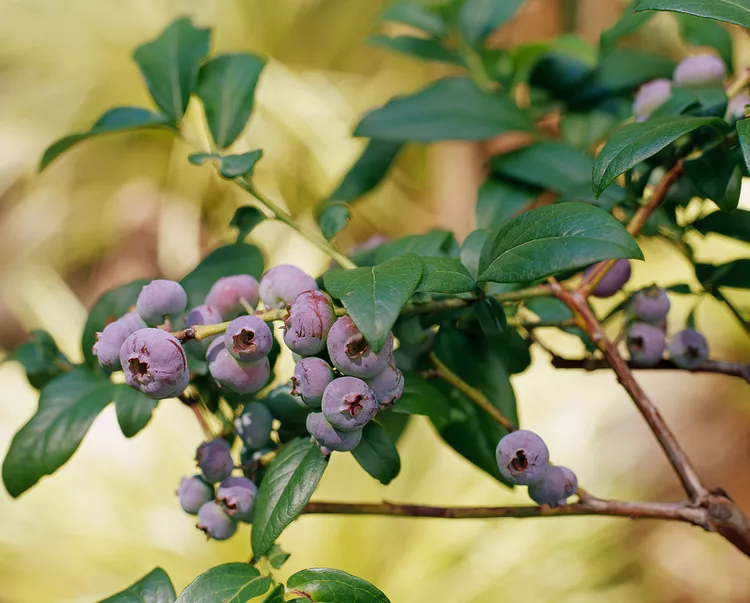Blueberry plants thrive in the hot days and cool nights of summer, which are the conditions they need to produce their sweet, smooth-skinned fruits that berry lovers can’t get enough of. The blueberry growing season starts in the spring with the appearance of delicate, bell-shaped blossoms that are white to pink in color. Once pollinated, those flowers develop into delicious berries over a few weeks' time. Here’s what you need to know to make the most of blueberry season, including its timing, how long it lasts, and how to tell when the fruit is truly ripe.
Which season is blueberry season?
Blueberry season is when the fruit is in its prime and ready to be harvested for the freshest tasting berries with outstanding flavor. According to the U.S. Highbush Blueberry Council (USHBC), the blueberry harvest season in North America runs from April to late September. Exact timing depends on the weather conditions of where they’re grown, so the best month for blueberries in Michigan will be different than Maine or Florida.
How Long Blueberry Season Lasts
In addition to climate, when your area's blueberry season is also dependent on the variety. Here are typical blueberry harvest times for regions in the United States.
California: March–June
Northeast: Late July–September
Southeast: April–May
Midwest: Mid-July–Early September
Rocky Mountains: Mid-July–Early September
Northwest: July–September
Southwest: April–June
How to Tell When Blueberries Are Ripe
You can't go by the size of blueberry fruits to determine ripeness because that will vary depending on genetics. Generally, wild blueberry plants produce smaller fruit than the cultivated blueberry fruit seen in grocery stores and fruit stands. Not enough water when the fruit is developing also leads to smaller berries.
A more reliable way to harvest the ripest blueberries is to keep an eye on the color development. When this fast-growing fruit is ripe enough for picking, it will be blue (or sometimes pink, depending on the variety) all the way around. Then let the fruit hang for another three to four days because that’s when they’ll have the most sweetness and flavor.
The area around the stem that connects to the fruit will be the last to ripen; if this area is still green or reddish, the berry is not quite ready to be picked. As the berries ripen to a deep purple-blue to blue-black, they’ll develop a protective waxy coating known as the bloom.
Blueberry Picking Tips
Don’t rush to pick the berries as soon as they turn color because the berry is often blue for quite a while before it’s fully ripe. Wait a few days and pick the ripe blueberries when they fall off in your hand when lightly touched. All the fruit on a blueberry plant doesn't ripen at the same time, so check the remaining blueberries on the stems every day to monitor their ripeness.
How to Get the Best Blueberry Harvest
To achieve the best fruit production, you should plant at least two different blueberry cultivars, so it can cross pollinate and produce an ongoing harvest from midsummer through fall. But if you have limited planting space, you can still get a lot of berries with only one cultivar because most blueberry plants can pollinate themselves. The exception is rabbiteye blueberries (Vaccinium virgatum).
It’s normal for blueberry plants to not have much fruit for the first 2 to 3 years, so don’t get discouraged about a small harvest. It generally takes about 6 years for most blueberry plants to reach full production. Blueberry plants grow slowly and will reach their full size in 8 to 10 years. To keep hungry birds away from the berries, tie some reflective streamers on to the blueberry branches.
The best way to keep your blueberry plants productive is to keep them pruned. In addition to maintaining a desirable plant size, pruning can boost fruit yields. Blueberries produce their best fruit on growth from the previous season.

